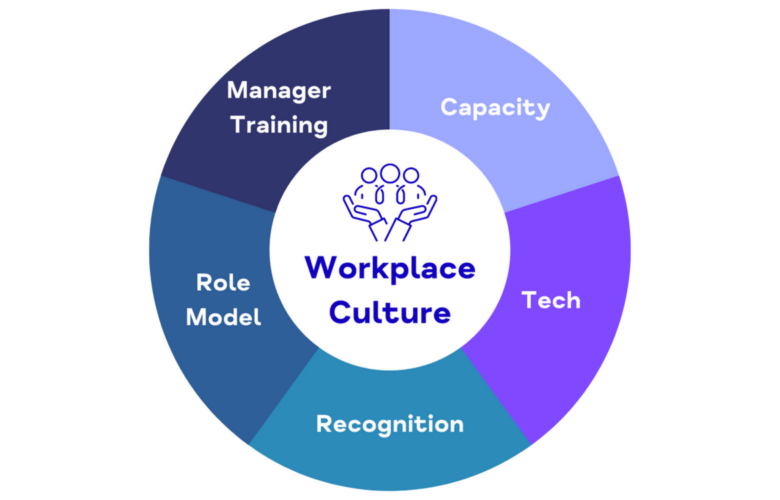Thought Leadership - Is workplace wellbeing an area worthy of investment? Author - Karen Arrowsmith (Lancashire Mind)

Karen Arrowsmith, Workplace Wellbeing & Training Lead at Lancashire Mind talks to us about Workplace Wellbeing, asking the question: Is workplace wellbeing just a buzz word or something companies should really invest in?
Karen has worked with Lancashire employers for over a decade to support the mental health and wellbeing needs of their workforce.
Karen and her team train on average 1,600 people per year, virtually and face to face. They travel to workplaces and organisations across Lancashire delivering workshops, training, and supporting wellbeing events and have worked with businesses and organisations of all sizes from multinational companies to micro businesses, from senior executives and blue light services to young farmers, from local authorities, universities and schools to nursery establishments.

Workplace Wellbeing has been a phrase that has been pushed around for many years, often with little depth of understanding of it’s full impact and potential. It can be regarded as a ‘nice to have’ in some workplaces. Yet your wellbeing offer tells potential new staff about your workplace culture, how much you value your staff, what kind of inhouse support they can expect. It can be seen as a measure of the success of your organisation, your ethos and belief system. In turn your employees will share their positive experiences, building your reputation as a good employer. It will support staff retention and will put your workplace above others in the recruitment market. So why is it often viewed as a ‘nice to have’? Let’s consider who might support workplace wellbeing… it often falls under human resources and/or occupational health. It makes sense as these are the teams responsible for recruitment, for sickness absence, for supporting your managers to support their teams. But what if you are a small business? Then the responsibility lies with the employer, the director, the CEO; workplace wellbeing might feel more like family or friendship, rather than a project to be managed and directed.
So what is really happening within workplaces at the moment? According to the CIPD Health and Wellbeing Report 2021 analysing the responses from 668 organisations in the UK, mental health is the most common focus of a workplace wellbeing activity, which is pleasing news to any mental health charity. However, this perhaps correlates with 79% of respondents citing stress as the biggest cause of absence, with workload being the leading factor closely followed by management style. Unsurprisingly in addition to this, a quarter of those respondents reported financial wellbeing as another factor impacting staff which is reflective of the ongoing cost of living crisis.
So, recognising those challenges, how are organisations tackling them? Interestingly, 1 in 5 respondents reported their organisation was taking no action to tackle stress at work. For those that did, 81% of respondents stated their organisation offered an Employee Assistance Programme (EAP), followed by staff surveys, flexible working, stress risk assessments and training to build resilience. From that we know resources are being utilised, and we know an EAP is often seen as a popular, easy solution. The fact that only 13% felt they were tackling the financial stresses adequately illustrates the challenges many workplaces are experiencing in the current economic climate.
We now need to consider who completed the survey, the survey was sent to HR and Learning and Development professionals, those who are often those tasked with workplace wellbeing. The picture of workplace wellbeing clearly isn’t a quick fix. Workplaces are facing ever demanding challenges balancing staff wellbeing, the external environment, productivity and financial margins. They are balancing investment in workplace wellbeing with supporting the financial stability of their staff; would our staff rather have inhouse yoga or an extra £ in their pay packet? It’s clear to me that what we’re investing in has to make a difference!
I often get asked this question – ”If there is one thing we could initiate at our workplace for the biggest impact, what should that be?” If only we could fix all our workplace challenges that easily! In my opinion ‘workplace wellbeing’ impacts so much more than human resources and it is worth the time and investment, it should recognise the intersectionality of our workforce and recognise the importance of the physical and mental health of our teams, therefore, supports both Equality and Diversity and the Health and Safety of our people, without whom there wouldn’t be a business.

So there is no ‘one size fits all’ answer. Yet, in this current financial climate wellbeing budgets are under strain. Health and safety budgets tend to have more stability, but we should support body AND mind. I am being contacted by more people wanting our services, recognising the challenges they are facing but having little to no budget.
In conclusion, workplace wellbeing can be building that culture, giving people the skills to listen and support others; or it can be something that signifies your commitment to your staff, that celebrates wellbeing days and gives your staff opportunities they may not otherwise experience. There is no wrong approach, it is how your workplace wellbeing is received that will influence its success. That is how you will build that positive workplace culture we all crave. The question is how and where are we going to invest in this? Should we be capitalising more on its benefits to health and safety? Should it still sit under human resources alone? Should we still call it ‘workplace wellbeing’ or is it just an overused, meaningless buzzword?
Sources:
CIPD Championing Better Work And Working Lives: ‘Health and Wellbeing At Work’, 2021

For more information about the services Karen and her Team offer visit:
Workplace Wellbeing and Training
If you have found this article useful and would like the opportunity to discuss more topics like this with like minded people, please consider joining our Lancashire Wellbeing Business Network:




